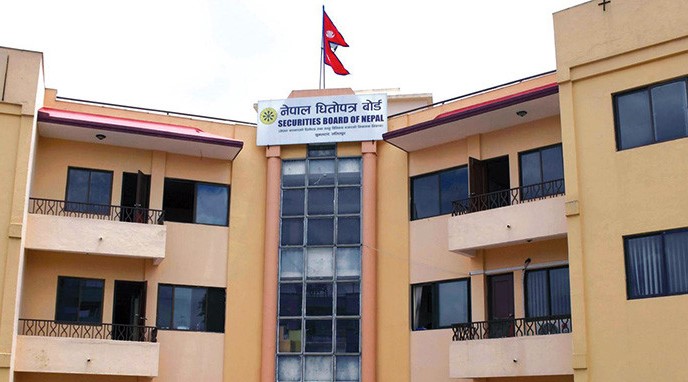KATHMANDU: The government has once again set the wheels in motion to amend the Securities Act, a law previously subjected to a proposed amendment in 2021, which failed to pass. The process has now been reinitiated, with the latest amendment focusing on more extensive revisions to the Act.
The earlier amendment made minor adjustments as part of a collective law revision, but the current proposal aims for a comprehensive overhaul with detailed explanations. However, the proposed changes primarily aim to formalize existing practices within the Securities Board of Nepal (SEBON) rather than introducing significant reforms to strengthen the regulatory body or modernize the capital market.
The bill mainly seeks to incorporate ongoing regulatory practices into the law, rather than addressing the need for institutional reforms or responding to new financial instruments emerging globally. For instance, provisions for specialized investment funds and the central depository services, which are already managed through regulations, are included in the amendment without much innovation.
Among the proposed changes are increases in fines, the introduction of a cooling-off period for SEBON employees, and the removal of institutional representation on the SEBON board, specifically from the Federation of Nepalese Chambers of Commerce and Industry (FNCCI) and the Nepal Chartered Accountants Association.
Despite some necessary provisions in the amendment, the bill does not reflect a vision for significant change. The capital market, now involving millions of participants, is becoming increasingly sensitive, yet the proposed amendments do not address the urgent need for regulatory enhancements.
Currently, SEBON operates under the shadow of the Ministry of Finance, with the capital market suffering from substantial political interference. This situation has led to expectations of institutional reform through amendments to the Act. However, former SEBON Executive Director Niraj Giri noted that the amendments do not include the necessary proposals to strengthen SEBON.
“There are several new provisions in the Act, including those related to capital markets and penalties, but the most crucial need—to strengthen SEBON—is not adequately addressed,” Giri remarked.
The government seems to be caught in a dilemma, aiming to signal reform by removing private sector representatives from SEBON, yet simultaneously seeking to consolidate power within government control. To make SEBON stable and strong, a more permanent and independent mechanism is required, akin to the structure of Nepal Rastra Bank, where only one ex-officio member is present. Instead of removing private sector representation, the qualifications for the chairman and board members should be standardized.
Currently, SEBON charges a 0.015% commission from both buyers and sellers on every transaction in the secondary market. Although there is a need to reduce this commission, the amendment has not addressed this issue.
With entrepreneurs heavily reliant on banks for capital, there has been growing pressure on the banking sector. The capital market remains underutilized for capital collection, forcing both established and new entrepreneurs to rely on banks. In more developed markets, dedicated platforms exist for small and medium-sized enterprises (SMEs) to access the capital market, but the Act in Nepal has failed to pave the way for such platforms.
Registration and issuance of securities should be the responsibility of the stock exchange, with SEBON acting strictly as a regulator. However, SEBON has been performing market operations, including charging fees for registration and issuance, which has also become a source of commission. Despite this being a longstanding issue, the government has once again overlooked the need to address it in the latest amendment.

